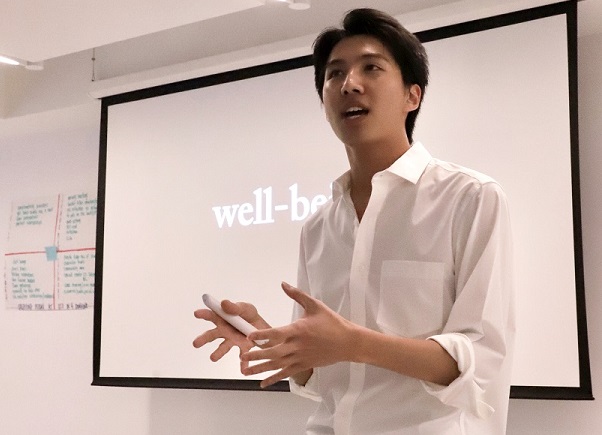
'Live well, sell well': is it possible to stay mentally healthy in the modern world of work?
Hongkongers mental health has deteriorated to its lowest level in years. That is according to the Chinese University of Hong Kong who scored local people's mental health at an index score of 46, which is below the minimum acceptable index of 52. Things are bleak in the region for many workers these days.
With that in mind, HR Magazine recently caught up with one of Hong Kong’s up-and-coming entrepreneurs. He is a teenager, yet has already worked with many organisations to spread the word that mental wellbeing, success and hard work are not mutually exclusive.
We asked him about his experiences as a member of Generation Z in Hong Kong and the struggles of getting a foothold in the working world.
Karl is still a student, but has positioned himself as a media and social impact entrepreneur. He has worked with a number of organisations, both local and international, in media work and digital marketing. The Gen Z market is growing, and companies need fresh ideas from young talent in order to effectively reach this market. Karl helps companies to do this, but has also started a movement all his own.
As the founder of ‘Live Well, Sell Well,’ Karl tries to blend together mental health advocacy (Live Well) with teaching marketing skills. The aim, he says, is to empower local communities of women and entrepreneurs. He has recognised the importance of people being able to sell themselves by letting audiences know about the skills and ideas they are proud of (Sell Well). In order to do this, Karl regularly engages in live workshops, public speaking and appearances in the media.
When asked about his interest in mental health, Karl was quick to point out some of Hong Kong’s failings. He believes that the region still stigmatises personal failures and mental struggles more than many other social issues. As part of a generation facing those issues, he finds it disheartening to still see young people afraid to talk about—or get help for—conditions such as depression, anxiety and eating disorders. Disorders that wreak havoc on young people’s lives, yet society in Hong Kong has not caught up with many other parts of the world in reducing the stigma.
Gen Z, in particular, has a willingness to explore, innovate and create. Unfortunately, Karl thinks that older generations sometimes take this the wrong way and are resistant to younger people. Nevertheless, if people take the initiative and prove themselves through their work ethic, they can break down those barriers. Karl said, “It’s hard for any young person to be taken seriously or given valuable professional opportunities—especially if they’re doing it on their own, without family connections. That’s why it’s important to look in the right places: agencies, small businesses and startups are usually great places to approach.”
As someone from Gen Z who is gaining success through his own hard work, Karl has some advice for other young people who hope to do the same. First, find your ‘side hustle’. Dealing with school is tough for teenagers in Hong Kong, but a side job can be both eye-opening and empowering. He also recommends reaching out to as many sources as possible: PR agencies, thought leaders on LinkedIn or startups in your area, and start asking for freelance work. The opportunities are out there if you network hard enough.
From an HR perspective, organisations need to work much harder to engage with the younger generation. They are the population providing the next wave of talent and leaders. Changing the workplace culture to accommodate what Gen Z wants to see will provide companies with a pipeline of talent for the future. Recruitment and retention are only successful in the long-term when their talent is connected. To this end, only those organisations who appreciate the diversity in today’s students and young workers will get the best from them.
You can contact Karl in the following ways:
website: http://Karllam.webnode.com
LinkedIn: https://www.linkedin.com/in/karlxlam/







